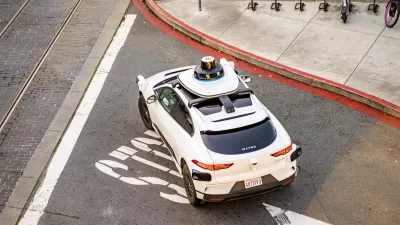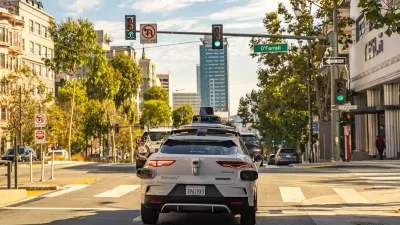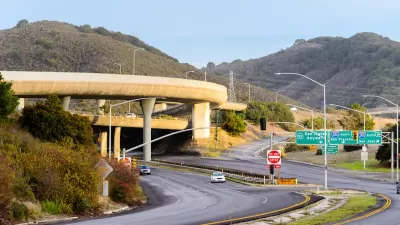The company suspended the Cruise self-driving taxi service late last year after a vehicle struck and seriously injured a pedestrian.

General Motors is ending its investment in Cruise, the company’s self-driving taxi division.
According to a Smart Cities Dive article by Dan Zukowski, GM cited the high cost of operating the service as a major reason for shutting it down. GM CEO Mary Barra said launching and operating a robotaxi business would cost significantly more than the $10 billion the company has already invested and that “A robotaxi business is not General Motors’ core business.”
The troubled robotaxi service was under investigation by the National Highway Traffic Safety Administration and had its operating permit revoked in California after a vehicle struck and dragged a pedestrian, seriously injuring them. The company suspended operations shortly after the incident.
The Alphabet-owned Waymo autonomous taxi service is still operating in San Francisco, Los Angeles, and Phoenix, in spite of concerns from city leaders. For its part, “GM plans to leverage Cruise’s expertise in autonomous technology to further develop its driver-assistance software, called Super Cruise, available on some General Motors vehicles.”
FULL STORY: GM shuts troubled Cruise robotaxi unit

Manufactured Crisis: Losing the Nation’s Largest Source of Unsubsidized Affordable Housing
Manufactured housing communities have long been an affordable housing option for millions of people living in the U.S., but that affordability is disappearing rapidly. How did we get here?

Americans May Be Stuck — But Why?
Americans are moving a lot less than they once did, and that is a problem. While Yoni Applebaum, in his highly-publicized article Stuck, gets the reasons badly wrong, it's still important to ask: why are we moving so much less than before?

Using Old Oil and Gas Wells for Green Energy Storage
Penn State researchers have found that repurposing abandoned oil and gas wells for geothermal-assisted compressed-air energy storage can boost efficiency, reduce environmental risks, and support clean energy and job transitions.

Updating LA’s Tree Rules Could Bring More Shade to Underserved Neighborhoods
A new USC study finds that relaxing Los Angeles’ outdated tree planting guidelines could significantly expand urban tree canopy and reduce shade disparities in lower-income neighborhoods, though infrastructure investments are also needed.

California's Canal Solar Projects Aim to Conserve Resources and Expand Clean Energy
California’s Project Nexus has begun generating electricity from solar panels installed over irrigation canals, with researchers and state agencies exploring statewide expansion to conserve water and boost clean energy production.

HHS Staff Cuts Gut Energy Assistance Program
The full staff of a federal program that distributes heating and cooling assistance for low-income families was laid off, jeopardizing the program’s operations.
Urban Design for Planners 1: Software Tools
This six-course series explores essential urban design concepts using open source software and equips planners with the tools they need to participate fully in the urban design process.
Planning for Universal Design
Learn the tools for implementing Universal Design in planning regulations.
Heyer Gruel & Associates PA
City of Moreno Valley
Institute for Housing and Urban Development Studies (IHS)
City of Grandview
Harvard GSD Executive Education
Salt Lake City
NYU Wagner Graduate School of Public Service
City of Cambridge, Maryland





























